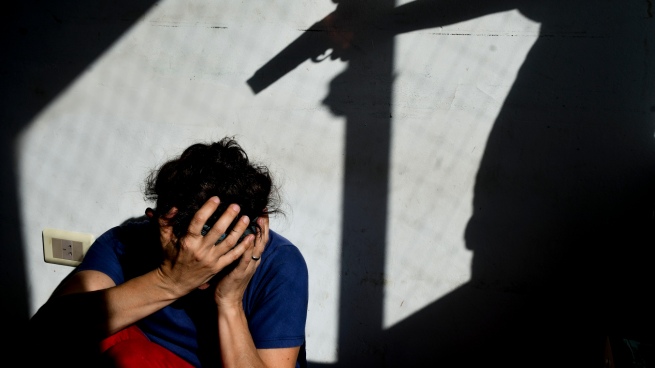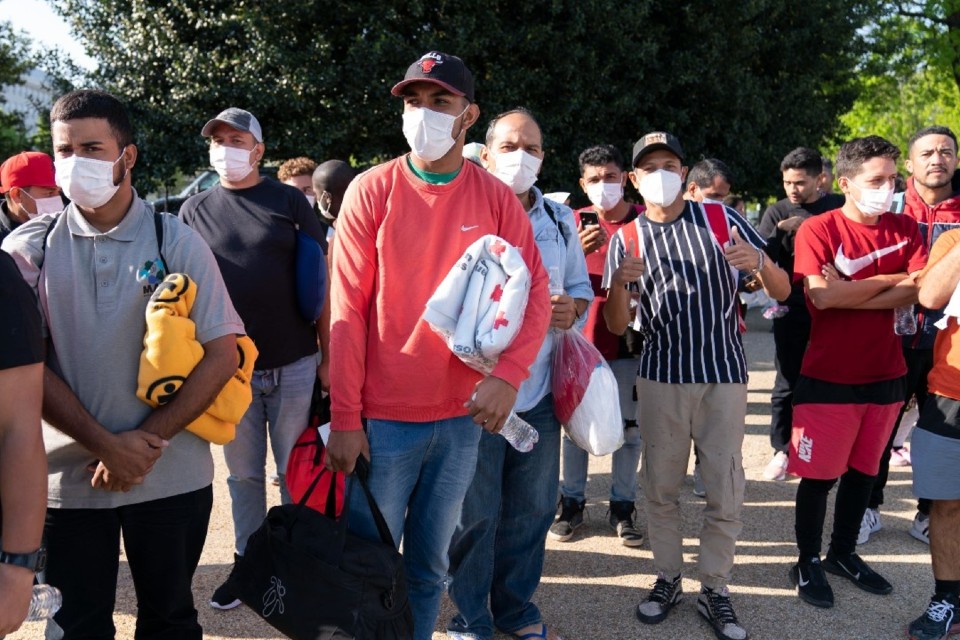Firearms “are instruments of violence” against women, since they are used “to kill, to exercise power, to threaten and to sexually abuse,” says María Pía Devoto, director of the Association for the Analysis of Public Policies ( APP), which this week presented a report that relates femicides to carrying weapons and proposes disarmament strategies.
Weapons were used in one of every four femicides committed in 2021, according to the latest official data from the Supreme Court.
“The Impact of firearms on gender violence: a look beyond the numbers”is the title of the work carried out by professionals from the Center for International Policy Studies of the Faculty of Social Sciences of the University of Buenos Aires (CEPI-UBA) and APP, with the support of the Embassy of Ireland in Argentina.
The objective of the report is “to make weapons visible as instruments of violence against women” and to make contributions on “the need to address policies with a gender perspective.”
#DisarmThursday
Research on ➡️ “The impact of firearms on gender violence. A look beyond the numbers”?️ Full report: https://t.co/13JuTiyqYT#DisarmTheViolence
.@Yohi_Solis @Denisesanviti pic.twitter.com/rlkiXB4lFs— appargentina (@appargentina1) September 22, 2022
The authors of the research are the graduates in Political Science Denise Sanviti and Yohana Soliswho explain that they compiled statistical information, official data and stories from survivors of gender violence who were violated with the use of firearms.
“In this way we want to understand what is behind the violence, beyond the numbers. Because behind a number, there is a name, a story, an injustice,” they say.
Last year, the direct victims of femicides killed with light and small arms were 25% of the 251 cases surveyed by the National Registry of Femicides of the Women’s Office of the Supreme Court of Justice (RNFJA), the only official one.
The Rnfja “positions Argentina in a comparative advantage since it allows the systematization of data on femicides at the national level and its direct and indirect link to the means used to perpetuate them and the circumstances of the victims and their aggressors, both as the bond that united them”, the authors point out.
“We want to understand what lies behind the violence, beyond the numbers. Because behind a number, there is a name, a story, an injustice”Denise Sanviti and Yohana Solis
Based on official statistics, the report reveals that “one in four femicides was committed with a firearm in 2021”.
“If we focus on the data regarding the use of small arms and light weapons in these femicides, we can see the increase from 18% in 2020 to 25% in 2021,” the researchers point out.
Another relevant fact is thatone in nine femicides were committed by someone belonging to a security forcea number that could be higher, since there are cases that do not have information regarding the aggressor’s occupation”.
There is evidence that 13 femicides used their regulatory weapons and that at least eight of the 25 security agents who committed the crimes committed suicide immediately after them, the study highlights.
The professionals also revealed that “in the last quarter of 2021, the National Agency for Controlled Materials (ANMaC) received 3,326 reports on gender and/or family violence, of which 1,812 reports remained unclassified, which represents more than 50% of the trades received”.

The ANMaC receives judicial complaints to disqualify violent carriers from the use of weapons and not give carrying permits to those who request it having a case for gender violence.
The body is part of the Interministerial Program for Comprehensive Approach to Extreme Violence for Gender Reasons, with the aim of “incorporating the gender and diversity perspective into voluntary disarmament of civil society by close relationship between possession/availability of firearms and femicides, transvesticides and transfemicides“, reads the official website of the initiative.
There are also regulations within the Security Forces with the aim of restricting the possession, carrying and transport of firearms to officers denounced for gender and/or intra-family violence. Spaces such as the Comprehensive Gender Centers were created in the four forces. and gender training and masculinity programs were promoted.
The document adds to the analysis the masculinization of the use of firearms: in Argentina 99% of registered users to carry them are menand only 1% are women.
“To the carrying of the regulatory weapon without any restriction is added the complicity between troops, thus impacting these factors on the decision and the very possibility of the victims to denounce their perpetrator”
“Carrying a statutory weapon 24 hours a day, protected by the ‘police state’, puts women who live with security officials at risk: in cases where there is sexist violence, he can use the weapon to harass, threaten , injure or kill. In some police, the regulations restrict carrying if the official was denounced for sexist violence, but many times there is no prior formal complaint, “the document analyzes.
And he adds that “to the carrying of the regulatory weapon without any restriction is added the complicity between troops, thus impacting these factors on the decision and the very possibility of the victims to denounce their perpetrator.”
In this regard, the professionals believe that “it is essential that the requirements imposed on those who aspire to legally carry a firearm be reviewed and deepenedso that the absence of a criminal record is no longer sufficient -translated into a conviction-, but rather the absence of complaints of domestic or gender violence is required, even if firearms have not been used in such acts “.

The authors say that “disarmament should be encouraged with incentives that are attractive to increase its effectiveness, such as the ease of processing that is required and significant financial compensation.”
“It is that if 25% of all the events recorded last year were committed through the use of firearms, and the estimate of the amount circulating illegally is public knowledge, promoting disarmament should be a priority action and sustained,” they concluded.
-
Attention, containment and advice in situations of gender violence
- By free call 24 hours Line 144
- By WhatsApp +5491127716463
- By mail to [email protected]
- Downloading the apps


















